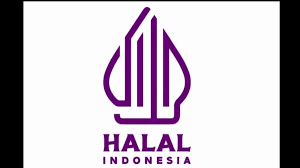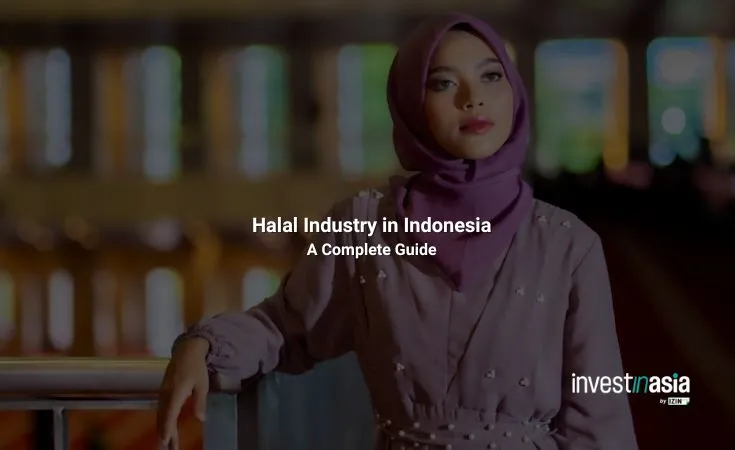Indonesia stands at the heart of the global halal economy, combining the world’s largest Muslim population with strong government commitment and expanding industrial capacity. The halal sector contributes over 28% of national GDP, supported by a market valued at USD 318.91 billion in 2024 and projected to exceed USD 922 billion by 2032.
As an expert team at InvestinAsia, we help foreign investors like you navigate this thriving ecosystem, from establishing a halal-certified company to obtaining the proper permits and certifications to operate legally in Indonesia.
Overview and Market Potential


The halal economy in Indonesia covers diverse industries: food, fashion, pharmaceuticals, cosmetics, finance, and tourism. Its rapid 14.2% CAGR shows both domestic and export-driven strength. Government policies aim to make Indonesia a global halal hub by integrating production, certification, and logistics across the supply chain.
The country’s halal GDP, estimated at USD 311.7 billion by 2025, is backed by high consumer confidence, competitive labor, and access to ASEAN and Middle Eastern markets.
Key Sectors Driving Indonesia’s Halal Growth
The following are several sectors that drive the growth of the halal industry in Indonesia:
Halal Food and Beverages
This sector dominates, representing over 80% of halal exports. Companies like Indofood and Mayora lead in packaged and processed goods. Muslim consumers spent USD 149 billion in 2022, expected to rise to USD 258 billion by 2030, signaling strong demand for certified brands.
Also read: Food and Beverage Industry in Indonesia: Outlook and Opportunities
Modest Fashion
Indonesia ranks #1 globally in modest fashion, exporting halal-certified apparel and textiles. The mandatory halal certification for clothing and textiles by October 2026 will further standardize the industry and open export potential.
Halal Pharmaceuticals and Cosmetics
With values of USD 6.1 billion and USD 5.4 billion respectively, these sectors represent rising demand for ethically sourced, halal-certified products. Major brands like Wardah and Kalbe Farma are already leading, yet room remains for new entrants and joint ventures.
Halal Tourism
Indonesia ranks #2 globally for Muslim-friendly tourism. Destinations such as Lombok and Aceh highlight infrastructure improvements, halal dining, and faith-based travel experiences.
Also read: Tourism Industry in Indonesia: Outlook and Opportunities
Islamic Finance
With IDR 2,582 trillion in assets and strong digital adoption, Indonesia’s Islamic banking and fintech sectors offer both financial inclusion and business growth opportunities for investors entering halal markets.
Halal Certification and Licensing in Indonesia


Legal Framework
Halal certification is mandated by Law No. 33/2014 on Halal Product Assurance and regulated by BPJPH (Halal Product Assurance Agency). From October 2024, certification is required for food, beverages, and slaughtering services, with further categories phased in by 2026.
Certification Process
- Application to BPJPH via SIHALAL system
- Audit by Halal Inspection Agency (LPH)
- Fatwa issuance by MUI
- Certificate issuance by BPJPH (valid 4 years)
For foreign products, certification from recognized Foreign Halal Certification Bodies (LHLN) can be registered via mutual recognition agreements.
Also read: Complete Guide to Halal Certification in Indonesia
For Foreign Companies
If you plan to export halal products or manufacture locally, you must obtain:
- Business Identification Number (NIB)
- BPOM (Food and Drug) Registration
- Environmental License
- Halal Certification through BPJPH
Our team at InvestinAsia simplifies this process through our Indonesia Licenses and Permits Application Services, ensuring full compliance and faster market entry.
Ecosystem, Infrastructure, and Support
Indonesia’s halal industry is supported by an advanced institutional and physical infrastructure:
- BPJPH oversees national halal certification and international cooperation.
- MUI issues fatwas confirming halal status.
- Halal Industrial Zones such as Modern Halal Valley (Banten), Halal Industrial Park (Sidoarjo), and Bintan Inti Halal Hub (Riau) offer tax holidays, logistic integration, and export facilities.
- Digital System SIHALAL allows online submissions and global access to certification databases.
These integrated zones offer ideal bases for foreign halal manufacturers looking to export regionally.
Advantages of Entering Indonesia’s Halal Market
Running a halal business in Indonesia has several advantages, including:
- Expansive Market Access: Reach 236 million Muslim consumers domestically and global buyers across more than 50 markets.
- Government Incentives: Enjoy tax allowances, import duty exemptions, and certification subsidies.
- Export Gateway: Leverage trade partnerships and halal industrial zones for regional exports.
- Brand Trust: Halal certification strengthens consumer loyalty and credibility.
- Digital Efficiency: Certification, registration, and compliance handled through modern online systems.
Challenges and Risk Awareness
While opportunities abound, investors must prepare for:
- Complex Regulations requiring proper documentation and coordination with BPJPH and BPOM.
- Infrastructure Gaps in some regions, particularly outside Java.
- Standardization Issues across international halal authorities.
Partnering with a trusted local consultant like InvestinAsia helps overcome these hurdles efficiently and legally.
How Foreigners Can Start a Halal Business in Indonesia
The ideal structure for foreign ownership is the PT PMA (Foreign-Owned Limited Liability Company).
You’ll need:
- Minimum paid-up capital: IDR 10 billion
- At least two shareholders (individuals or entities)
- Local registered business address (a virtual office is acceptable)
As experts in foreign business setup, we handle every step of Indonesia PT PMA Company Registration, from establishing your PT PMA and obtaining the NIB to securing your halal permits, ensuring your business complies fully with Indonesian regulations.
Also read: Why Foreign Investors Choose InvestinAsia for PMA Registration in Indonesia
Future Outlook and Regional Competitiveness
Indonesia is on track to become the global halal manufacturing hub by 2030, competing closely with Malaysia and the UAE.
With a demographic advantage, rapid infrastructure growth, and digital governance, the nation’s halal ecosystem provides unmatched opportunities for foreign investors who enter early.
By aligning with Indonesia’s halal roadmap today, you secure a front-row seat in one of the world’s most dynamic ethical economies.
FAQs about Indonesia’s Halal Industry
Is halal certification mandatory in Indonesia?
Yes. By 2026, all food, cosmetics, pharmaceuticals, and textile products must be halal-certified to be marketed legally.
How long does halal certification take?
Typically 21 to 45 working days, depending on product complexity and inspection results.
Can foreign companies apply directly for halal certification?
Yes. Through BPJPH, foreign firms can register existing certificates issued by recognized international bodies.
Are there incentives for halal investors?
Yes. The government offers tax holidays, free certification for MSMEs, and export facilitation in designated halal industrial zones.
What is the best way to start a halal business in Indonesia?
Establish a PT PMA with the right licenses and halal certification. InvestinAsia can guide you through registration, compliance, and market entry.



